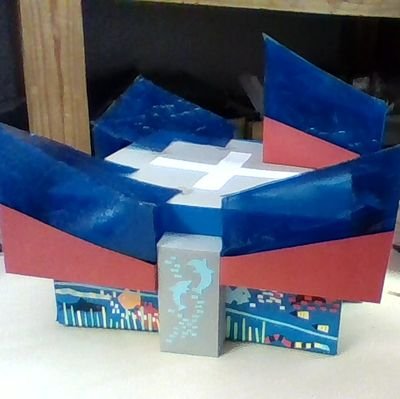結果
| 問題 | No.3111 Toll Optimization |
| コンテスト | |
| ユーザー |
 Tatsu_mr Tatsu_mr
|
| 提出日時 | 2025-04-19 11:31:26 |
| 言語 | C++23 (gcc 15.2.0 + boost 1.89.0) |
| 結果 |
AC
|
| 実行時間 | 253 ms / 5,000 ms |
| コード長 | 5,938 bytes |
| 記録 | |
| コンパイル時間 | 4,791 ms |
| コンパイル使用メモリ | 289,852 KB |
| 実行使用メモリ | 88,664 KB |
| 最終ジャッジ日時 | 2025-04-19 11:31:42 |
| 合計ジャッジ時間 | 13,486 ms |
|
ジャッジサーバーID (参考情報) |
judge4 / judge2 |
(要ログイン)
| ファイルパターン | 結果 |
|---|---|
| sample | AC * 3 |
| other | AC * 70 |
ソースコード
#include <bits/stdc++.h>
using namespace std;
#define For(i, a, b) for(int i = (a); i < (b); i++)
#define rep(i, n) For(i, 0, n)
#define rFor(i, a, b) for(int i = (a); i >= (b); i--)
#define ALL(v) (v).begin(), (v).end()
#define rALL(v) (v).rbegin(), (v).rend()
#define SZ(v) ((int)(v).size())
using lint = long long;
using ld = long double;
int INF = 2000000000;
lint LINF = 1000000000000000000;
struct SetupIo {
SetupIo() {
ios::sync_with_stdio(false);
cin.tie(nullptr);
cout << fixed << setprecision(15);
cerr << fixed << setprecision(15);
}
} setupio;
template <class T>
struct Edge {
int from, to;
T cost;
int idx;
Edge() {}
Edge(int to_) : to(to_) {}
Edge(int to_, T cost_) : to(to_), cost(cost_) {}
Edge(int from_, int to_, int idx_) : from(from_), to(to_), idx(idx_) {}
Edge(int from_, int to_, T cost_, int idx_) : from(from_), to(to_), cost(cost_), idx(idx_) {}
};
template <class T>
struct StaticGraph {
private:
template <class It>
struct Es {
It b, e;
It begin() const { return b; }
It end() const { return e; }
int size() const { return int(e - b); }
auto &&operator[](int i) const { return b[i]; }
};
int n;
vector<pair<int, Edge<T>>> es;
vector<int> start;
vector<Edge<T>> eli;
bool built;
public:
StaticGraph() {}
StaticGraph(int n_) : n(n_), start(n + 1), built(false) {}
void add(int u, int v) {
assert(!built);
assert(0 <= u && u < n);
assert(0 <= v && v < n);
es.emplace_back(u, (Edge<T>){v});
}
void add(int u, int v, T w) {
assert(!built);
assert(0 <= u && u < n);
assert(0 <= v && v < n);
es.emplace_back(u, (Edge<T>){v, w});
}
void add(int u, int u_, int v, int i) {
assert(!built);
assert(0 <= u && u < n);
assert(u == u_);
assert(0 <= v && v < n);
es.emplace_back(u, (Edge<T>){u, v, i});
}
void add(int u, int u_, int v, T w, int i) {
assert(!built);
assert(0 <= u && u < n);
assert(0 <= v && v < n);
assert(u == u_);
es.emplace_back(u, (Edge<T>){u, v, w, i});
}
void build() {
if (built) {
return;
}
eli.resize(es.size());
for (auto [v, e] : es) {
start[v + 1]++;
}
for (int i = 1; i <= n; i++) {
start[i] += start[i - 1];
}
auto counter = start;
for (auto [v, e] : es) {
eli[counter[v]++] = e;
}
built = true;
}
int size() const {
return n;
}
Es<typename vector<Edge<T>>::iterator> operator[](int v) {
assert(built);
assert(0 <= v && v < n);
return {eli.begin() + start[v], eli.begin() + start[v + 1]};
}
};
namespace dijkstra {
template <class T>
vector<T> Dijkstra(StaticGraph<T> &g, int s) {
T mx = (is_same<T, int>::value ? 2000000000 : 1000000000000000000);
vector<T> d(g.size(), mx);
priority_queue<pair<T, int>, vector<pair<T, int>>, greater<pair<T, int>>> pq;
d[s] = T(0);
pq.emplace(d[s], s);
while (!pq.empty()) {
auto [c, v] = pq.top();
pq.pop();
if (d[v] < c) {
continue;
}
for (auto &e : g[v]) {
int nv = e.to;
T nc = c + e.cost;
if (d[nv] > nc) {
d[nv] = nc;
pq.emplace(d[nv], nv);
}
}
}
return d;
}
template <class T>
struct DijkstraRestore {
private:
int s;
T mx;
vector<T> d;
vector<Edge<T>> prev;
priority_queue<pair<T, int>, vector<pair<T, int>>, greater<pair<T, int>>> pq;
public:
DijkstraRestore() {}
DijkstraRestore(StaticGraph<T> &g, int s_) : s(s_), prev(g.size()) {
mx = (is_same<T, int>::value ? 2000000000 : 1000000000000000000);
d.resize(g.size(), mx);
priority_queue<pair<T, int>, vector<pair<T, int>>, greater<pair<T, int>>> pq;
d[s] = T(0);
pq.emplace(d[s], s);
while (!pq.empty()) {
auto [c, v] = pq.top();
pq.pop();
if (d[v] < c) {
continue;
}
for (auto &e : g[v]) {
int nv = e.to;
T nc = c + e.cost;
if (d[nv] > nc) {
d[nv] = nc;
prev[nv] = e;
pq.emplace(d[nv], nv);
}
}
}
}
vector<T> dists() const {
return d;
}
T dist(int t) const {
assert(0 <= t && t < (int)d.size());
return d[t];
}
vector<Edge<T>> route(int t) const {
assert(0 <= t && t < (int)d.size());
if (s == t || d[t] == mx) {
return {};
}
vector<Edge<T>> res;
int cur = t;
while (cur != s) {
res.emplace_back(prev[cur]);
cur = prev[cur].from;
}
reverse(res.begin(), res.end());
return res;
}
};
} // namespace dijkstra
using namespace dijkstra;
int main() {
int n, m, k;
cin >> n >> m >> k;
vector<lint> c(m);
rep(i, m) {
cin >> c[i];
}
StaticGraph<lint> g((k + 1) * n);
rep(i, m) {
int u, v;
cin >> u >> v;
u--, v--;
rep(j, k + 1) {
int x = u + j * n;
int y = v + j * n;
g.add(x, y, c[i]);
g.add(y, x, c[i]);
}
rep(j, k) {
g.add(u + j * n, v + (j + 1) * n, 0LL);
g.add(v + j * n, u + (j + 1) * n, 0LL);
}
}
g.build();
auto d = Dijkstra(g, 0);
lint ans = LINF;
rep(i, k + 1) {
ans = min(ans, d[(n - 1) + i * n]);
}
cout << (ans != LINF ? ans : -1) << "\n";
}
